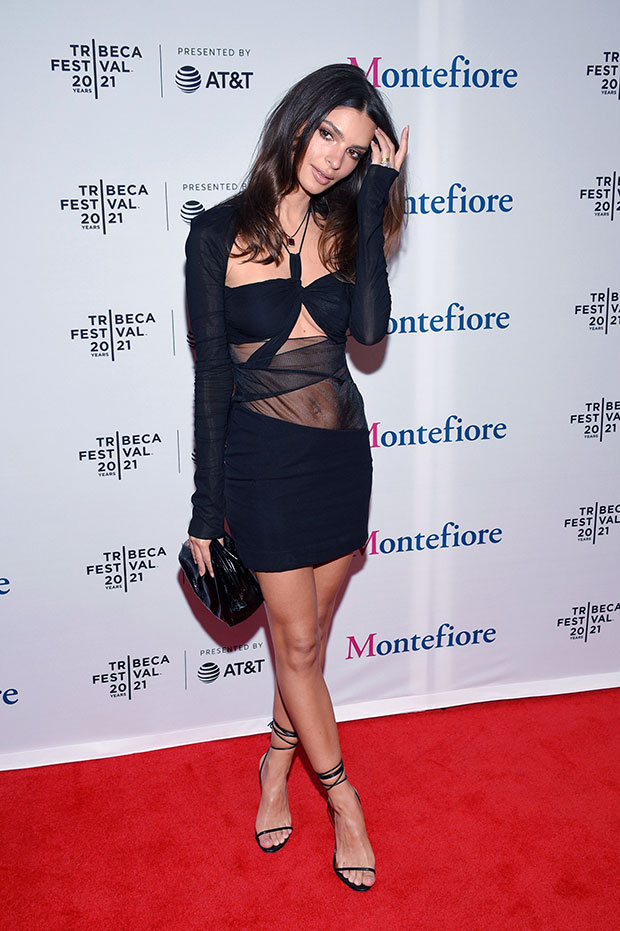Emily Ratajkowski looked amazing in a sexy sheer dress at the Tribeca Film Festival, where she co-hosted a ‘Storytellers Q&A’ with Amy Schumer.
Can you believe it’s been only three months since Emily Ratajkowski, 30, gave birth to her son, Sylvester? The model, who recently celebrated her 30th birthday in Turks & Caicos with her friends and family, wore a lingerie-inspired, flesh-baring cut-out mini dress by London label Nensi Dojaka that flaunted her bare, toned tummy, as she walked the red carpet at the 2021 Tribeca Film Festival in New York City on June 12. Emily was there, along with gal-pal Amy Schumer, 40, to co-host the Storytellers Q&A Panel, where the two provided insight (and laughs) into this pair’s friendship and career.

While speaking with Amy and fans at the Storytellers Q&A on June 12, the actress and mom spoke up in defense of Megan Fox and her treatment on the film This Is 40, directed by Judd Apatow. “The film is not aging well,” said Emily in regards to the treatment of Megan Fox’s character in the 2012 spin-off to the film Knocked Up. “That movie is hilarious and very spot-on. I recommend everybody who has a husband or wife and kids to watch the movie, but Megan Fox is treated in it so badly.”
Since giving birth to her and her husband, Sebastian Bear-McClard’s ,34, first child, the multi-talented model and activist has doted on her son and shared many body-positive images of her breastfeeding. A month after Sylvester was born, Emily uploaded a picture of herself sitting down while feeding him and added the cheeky caption, “If it seems like I’m always breastfeeding it’s because I am”. That moment of motherly love, as well as many of the other breastfeeding pictures she has uploaded, have sparked praises by many women in the industry who want to break down the stigma of nursing a child in public. Celebrities such as Irina Shayk and Halsey have praised Emily for helping break down the stigma.
In an essay written to Vogue last October, Emily wrote about raising her child without the need to conform to any specific gender, even though she understands an expecting mother’s desire to know. She tells the magazine, “I like the idea of forcing as few gender stereotypes on my child as possible. But no matter how progressive I may hope to be, I understand the desire to know the gender of our fetus; it feels like the first real opportunity to glimpse who they might be.”
